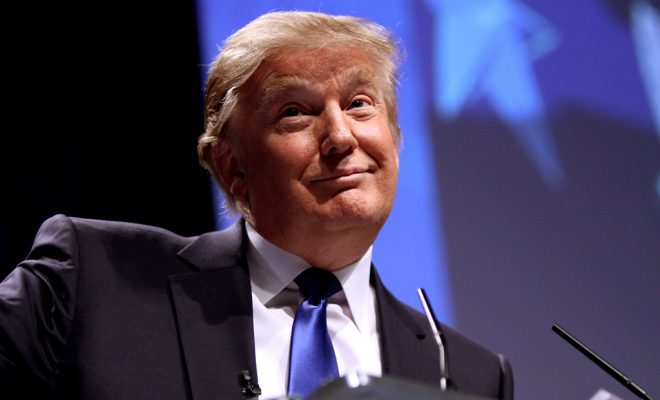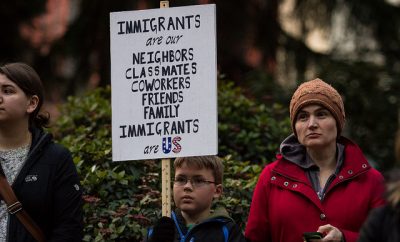 Image Courtesy of Gage Skidmore; License: (CC BY-SA 2.0)
Image Courtesy of Gage Skidmore; License: (CC BY-SA 2.0)
Politics
Trump’s Travel Ban Defeated in Court Once Again
President Donald Trump’s campaign proposal of a “Muslim ban” is coming back to haunt him yet again: on Wednesday, two federal judges blocked Trump’s new travel ban, which would have restricted travel from six largely Muslim countries. The ban was set to go into effect at midnight. These rulings mark the second time Trump’s attempts at implementing such an order–essentially a veiled “Muslim ban”–have failed.
Both judges ruled that the executive order amounted to religious discrimination. Judge Derrick Watson of the Federal District Court in Honolulu issued a temporary restraining order on Trump’s directive, on the grounds that it was “issued with a purpose to disfavor a particular religion, in spite of its stated, religiously neutral purpose.”
Hours later in Maryland, U.S. District Court Judge Theodore Chuang ruled that the purpose of the ban was “the effectuation of the proposed Muslim ban” that Trump repeatedly invoked during the campaign. The plaintiff in Honolulu was Ismail Elshikh, the imam of the Muslim Association of Hawaii. Elshikh argued that the ban would have barred his Syrian mother-in-law from visiting him. Syria is one of the six countries–along with Sudan, Libya, Somalia, Yemen, and Iran–included in Trump’s order.
The Maryland ruling was based on complaints by a cohort of nonprofit groups who work with refugees and immigrants. At a rally in Nashville after the Hawaii judge announced his ruling, Trump said he would take his case to the Supreme Court. He also suggested scrapping the second order, which dropped Iraq from the list of affected countries, and instead pursuing the first one in court.
“Let me tell you something. I think we ought to go back to the first one and go all the way,” Trump said. “The danger is clear, the law is clear, the need for my executive order is clear.” While there is an argument that Trump was within his executive authority in issuing the order, there is not much tangible evidence that the order would alleviate a clear danger to U.S. national security. Americans have never been killed in a terrorist attack by a citizen from one of the six affected countries.
The government’s next move is likely going to be similar to what happened with the first order last month. An appeal of Watson’s ruling–which was broader than Chuang’s–would be heard by the same federal appeals court in San Francisco that upheld the legal challenge to Trump’s first order. That appeal followed a ruling by a judge in Washington.
Since the issuance of his first travel ban in January, Trump has faced stiff resistance from Democrats, advocacy groups, and even some members of his own party. The Trump Administration contends the order–which freezes travel from the six countries for at least 90 days, and pauses refugee admissions for at least 120 days–is legal, and is based on guidelines the Obama Administration originally set.
But so far, Trump’s argument has been defeated by his own backlog of statements that seem to undermine his claim that his actions are just meant to protect national security. The legal battle is sure to continue, but for now at least, Trump might need to go back to the drawing board.








Comments